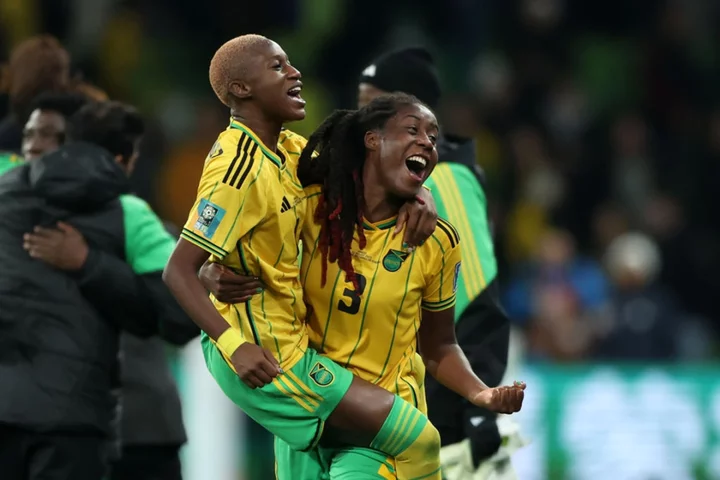
How the Women’s World Cup delivered its greatest ever group stage — against all the odds
The upsets at the Women’s World Cup group stage started on the opening day and ended with the biggest of all. Germany, the two-time champions and among the tournament favourites, are out before the quarter-finals for the first time in their history, a result that ranks as both the most stunning shock the tournament has ever seen, while also simply continuing the theme of the greatest group stage ever played at the Women’s World Cup. After all, hadn’t we learned to expect the unexpected? A 1-1 draw against South Korea sealed Germany’s fate, following their dramatic 2-1 defeat to Colombia earlier in Group H. It meant Morocco, making their Women’s World Cup debut, progressed ahead of the side who thrashed them 6-0 in the opening round. The first-ever 32-team Women’s World Cup and the decision to expand from 24 teams has been a resounding triumph: rather than creating a more predictable group stage, it has done the opposite and led to wonderfully chaotic, thrilling tournament football. Germany, Canada and Brazil, all sides ranked in the top 10 in the world, are out, while Jamaica (43rd), South Africa (54th) and Morocco (72nd) are through to the last-16. It can no longer be said that the group stages of the Women’s World Cup are a foregone conclusion and that the tournament only starts when the knockouts begin. New Zealand’s opening victory against Norway set the tone, with Colombia’s last-second win against Germany standing out as the highlight of a tournament that has so far had it all. To add to that, Jamaica reaching the last-16 with their draw against Brazil, Nigeria’s stunning victory against Australia, and South Africa’s dramatic comeback against Italy were all brilliant moments from a group stage that delivered the unpredictability and drama of knockout football. The number of shocks and upsets throughout illustrated that the progress and development of women’s football since the last World Cup has been felt just as much throughout the world than its traditional powers. The gap to the top has closed: the professionalisation of top European leagues and beyond has improved standards at the biggest clubs, and is providing more opportunities to players from across the globe. Several countries that do not have a strong domestic league, such as Colombia and Jamaica, instead now feature a core of players who are based in Europe. It means that even if playing conditions are lacking within their national organisations, players such as Colombia and Real Madrid’s Linda Caicedo, Nigeria and Barcelona’s Asisat Oshoala, and Jamaica and Manchester City’s Khadija Shaw are able to raise standards and expectations when they return to their national teams. The level of coaching has also improved, with teams who are not among the traditional powers now confident in setting up organised, defensive structures in order to restrict the attacking talents of their more favoured opponents. The goalkeeping at this World Cup has also taken another huge step forward, which has been proved by player-of-the-match displays from Nigeria’s Chiamaka Nnadozie, Philippines’ Olivia McDaniel, Ireland’s Courtney Brosnan and Jamaica’s Rebecca Spencer. Strong defensive bases have made teams more resilient, and upsets possible. The World Cup needed this, too, and the decision to increase the field to 32 teams has paid off more than anyone expected. There were some fears that the expansion had come too soon, and that certainly would have been the assessment had the seeded teams all coasted through unopposed, as they did in 2019. But that was not the case and there were only a handful of one-sided contests, with the majority of groups going down to the final round, setting the stage for classic World Cup drama. Morocco led the eight teams making their debuts at the World Cup, but most of the others had moments to celebrate. Haiti deserved more from Group D but shone in their display against England. Ireland were also unlucky to only come away with a point, but their performances against Australia and Canada made an impact back home and there will be a homecoming parade in Dublin. Portugal were one of the most tactically and technically interesting sides at the tournament and were inches away from knocking out the USA. Philippines and Zambia, who were ultimately a disappointment, both had historic wins and sparked moments of national celebration. The question, and obvious hope before the World Cup, is how those moments inspire further progress and, crucially, investment. Many of the debuting countries did far more than that at their first World Cup, offering competitive performances, and they can look at how Jamaica and South Africa have battled against the odds to improve from four years ago. Both Jamaica and South Africa lost every game when they made their debuts in France, but have now advanced to the knockout stages four years later. But what also makes Jamaica and South Africa’s success even more remarkable is what they have had to overcome. Their success is owed to the players and the work of their immediate support staff, and that alone. Along with Nigeria, they have reached the knockout stages despite their federations, not because of them. Before the World Cup, Jamaica’s players said their preparations for the tournament had been disrupted by a lack of financial support, planning and communication from the Jamaica Football Federation. They went public with their grievances in an open letter to the JFF, where they expressed their “utmost disappointment” that training camps and warm-up fixtures had not been organised before the World Cup. At the same time, Jamaica have relied on two separate crowdfunding campaigns to help cover the costs of their travel to Australia and New Zealand. After their historic qualification to the 2019 World Cup, which was also supported by crowdfunding campaigns, led by Cedella Marley, the daughter of Bob Marley, it felt like Jamaica were back to square one as the progress they had fought for off the field had not been matched by meaningful change off it. Yet the response of the players has been to aim higher and further, despite the lack of support or respect they have been shown. After knocking out Brazil, Jamaica’s progress was hailed as “undoubtedly the proudest moment in Jamaica’s football history” by the country’s sports minister Olivia Grange. However, it should also come as a moment of huge embarrassment to the country’s federation, with Jamaica’s success actually creating a spotlight for the lack of support they have received. “We put the dispute to bed for the tournament but the better we do, the more pressure it creates,” said Jamaica’s goalkeeper Rebecca Spencer after keeping a famous clean sheet against Brazil. "We hope they’re looking at us and do what they should be doing." The federations of South Africa and Nigeria are under the same spotlight. South Africa’s first-ever World Cup win against Italy to seal their spot in the last-16 capped a stunning turnaround after their players went on strike before the tournament, boycotting their final warm-up game against Botswana over bonus payments and player contracts. The dispute centred around Fifa’s prize money for the World Cup and a guarantee that it would be distributed to the players. Before the World Cup, Fifa announced an increase in its total prize money to $152m (£126m), which included a payment of £30,000 (£24,000) for each player at the tournament. For the players representing South Africa and Nigeria, that is set to double after reaching the last-16, a life-changing sum, but the prize money will only be distributed to the players by the federations, it does not mean players are guaranteed to receive it. It created uncertainty for South Africa, who only reached an agreement with their federation that their money would be released days before the tournament. The picture looks less certain for Nigeria, who were locked in their own pay dispute with the federation before the World Cup. Nigeria’s head coach Randy Waldrum has said he hasn’t been paid in seven months, and that some players had not been paid in two years. After Nigeria stunned Australia in the group stages, former England and Arsenal striker Ian Wright simply tweeted: “Pay them”. There may be people within some of the federations who point to the success stories of the Women’s World Cup as evidence that developments in the game are creating an equal playing field, and that further financial support is not merited. The reality and the lesson throughout this brilliant group stage is that if this is what can be achieved despite the lack of support, imagine what could be done if there was. With that in mind, there is no reason why any team inside the top-50 in the world shouldn’t be capable of the same if the right foundations are built. For now, those teams who have stunned the World Cup and remain at the tournament can continue to show why it was wrong not to support them before their unexpected success. Read More Women’s World Cup TV schedule: How to watch every match today Women’s World Cup golden boot: Who’s leading the top-scorer standings? When do England play next? Women’s World Cup fixtures and route to the final Brazil and Marta exit World Cup as Jamaica makes history When does USWNT play next? World Cup schedule and route to the final Germany suffer Women’s World Cup elimination after South Korea draw
1970-01-01 08:00
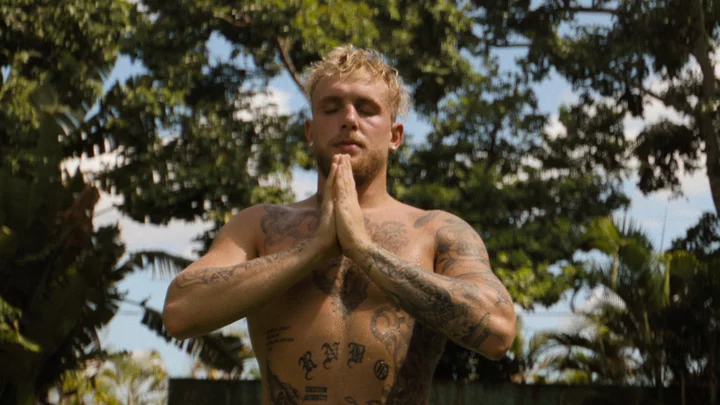
In Netflix's Jake Paul documentary, abuse is just a necessary evil
Jake Paul, the YouTuber-turned-pro-athlete, has made millions by transforming controversy into a career. His contentious
1970-01-01 08:00

WWE® & Slim Jim® Return to the Ring With Record-Breaking Partnership Ahead of SummerSlam
STAMFORD, Conn.--(BUSINESS WIRE)--Aug 3, 2023--
1970-01-01 08:00
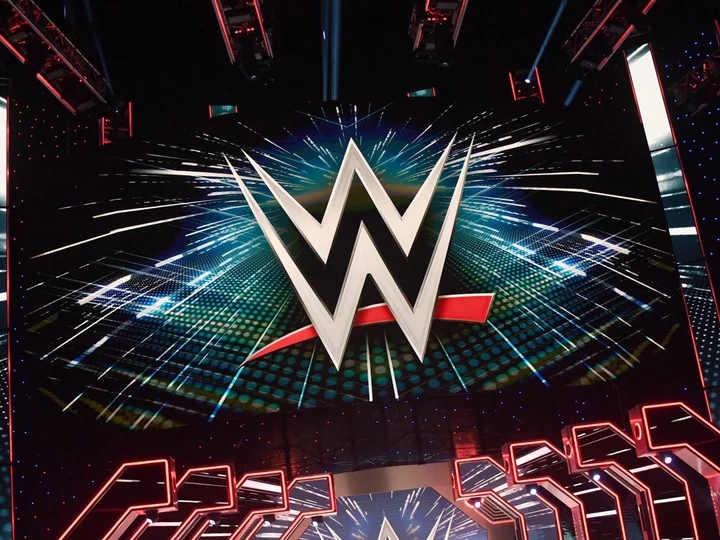
WWE Signs Slim Jim to Wrestling’s Biggest-Ever Sponsorship Deal
Slim Jim, the meaty snack food owned by Conagra Brands Inc., is signing a multievent deal with World
1970-01-01 08:00
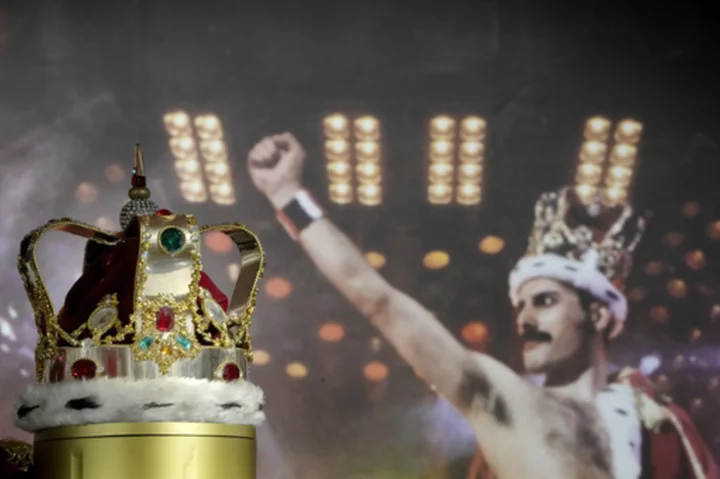
Freddie Mercury's beloved piano, song drafts and hundreds of personal items to go on sale
More than 1,400 of Freddie Mercury’s personal items, including his flamboyant stage costumes, handwritten drafts of “Bohemian Rhapsody” and the baby grand piano he used to compose Queen’s greatest hits, are going on show in a free exhibition at Sotheby’s London ahead of their sale
1970-01-01 08:00

Nintendo Download: Fly or Fry
REDMOND, Wash.--(BUSINESS WIRE)--Aug 3, 2023--
1970-01-01 08:00
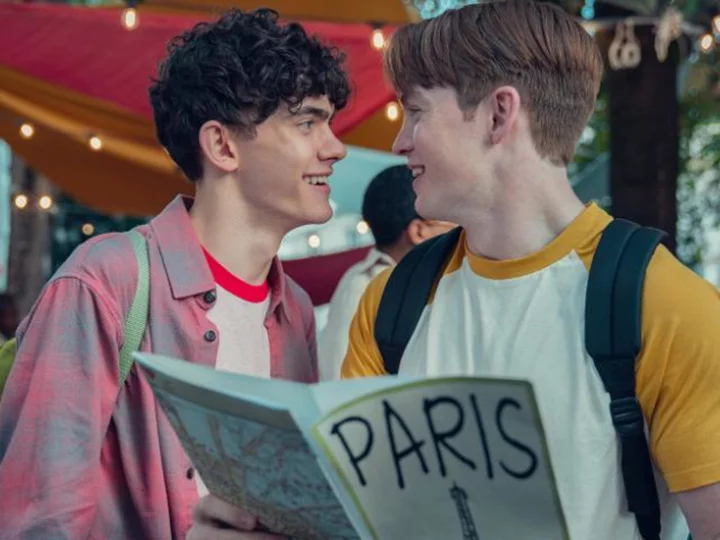
How 'Heartstopper' became the anti-'Euphoria' with its tender coming-of-age tone
Nothing particularly dramatic happens during "Heartstopper," the British teen drama that returns for its second season this week. And that alone, oddly, makes the show -- which the San Francisco Chronicle rightly dubbed "the anti-'Euphoria'" -- feel somehow revolutionary, even more so a year after its US debut.
1970-01-01 08:00
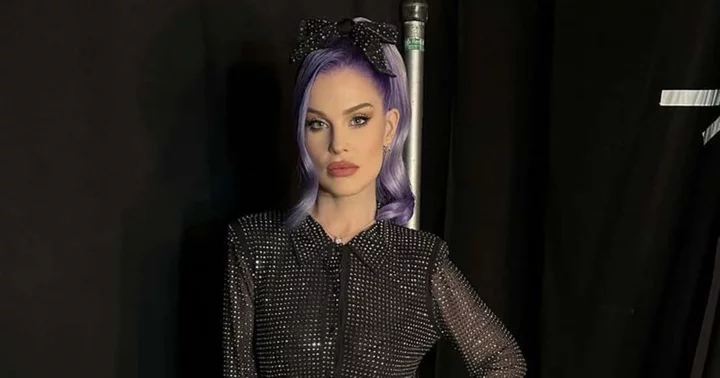
Is Kelly Osbourne married? Daughter of Ozzy and Sharon Osbourne ‘hid for nine months’ over fears she’d be fat-shamed during pregnancy
Kelly Osbourne reportedly walked away from the public eye during the early stages of her motherhood journey
1970-01-01 08:00
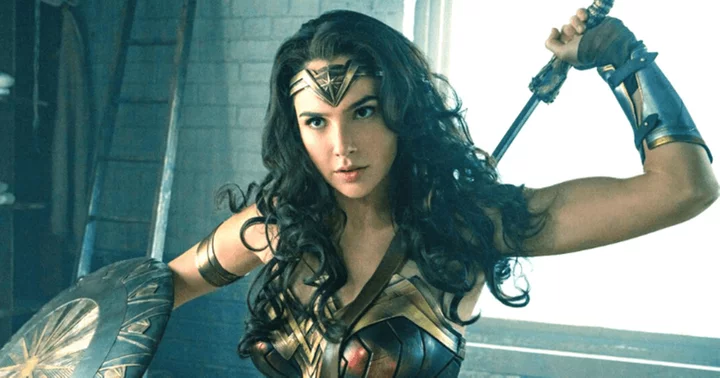
Is 'Wonder Woman 3' happening? Gal Gadot says third movie in development at James Gunn’s DCU, confuses fans
'Things are being worked behind the scenes,' Gal Gadot revealed in an interview
1970-01-01 08:00
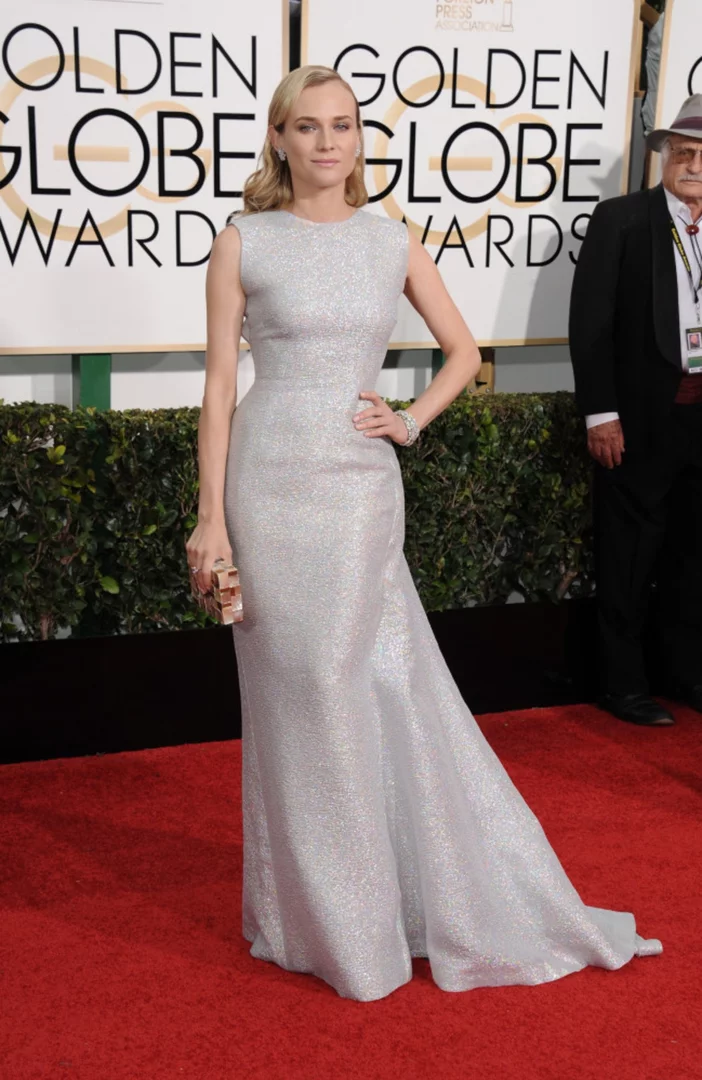
Diane Kruger to receive Golden Eye Award at Zurich Film Festival: ‘I’m honoured and proud!’
After being hailed as one of the world’s finest character actresses, Diane Kruger is set to receive the Golden Eye Award at this year’s Zurich Film Festival.
1970-01-01 08:00
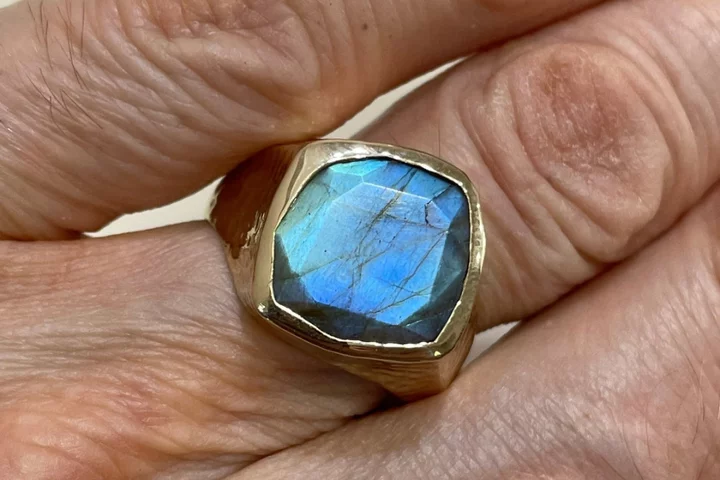
Men’s engagement rings are getting more popular – here’s what experts say about the trend
More and more men are embracing statement jewellery and wearing engagement rings, according to industry insiders. The trend isn’t exactly brand new. For example, back in 2009, American singer, actress and TV host Jennifer Hudson decided to propose back to her then partner, American actor David Otunga – getting down on one knee with a ring in hand, five months after he’d first popped the question to her on her 27th birthday. Later, singer Michael Bublé sported an engagement ring after he and Luisana Loreley Lopilato de la Torre got engaged, telling fans it was usual that “the boy also wears the engagement ring” in Argentina, where his now wife is from. Former American footballer Osi Umenyiora was another male celeb spotted wearing an engagement ring, among others. Attitudes are shifting For Arabel Lebrusan, founder and designer at ethical jewellery designer brand Lebrusan Studio, the margins for ‘bridal’ jewellery customs are shifting, largely in line with our evolving understanding of gender roles and identity. “But what makes the current demand difficult to define by concrete statistics is the difference in the language used to refer to engagement rings for men versus engagement rings for women, with men’s engagement rings often discussed in more ambiguous terms,” Lebrusan told PA Media.“Western tradition has assigned engagement rings primarily to women for centuries, but a greater emphasis on gender equality within couples and increasing visibility, inclusivity and liberty of LGBTQ+ people has loosened the rules that once governed who could and couldn’t wear an engagement ring,” she added.“Up until last year, we’d never knowingly been commissioned to create a men’s engagement ring, so even one assignment in this field is technically an increase.” What should you look for in a men’s engagement ring? According to the industry experts, male engagement rings are usually selected on an individual basis and every enquiry is different. Dan Dower, design director at Dower & Hall, said they rarely get asked for an actual engagement ring for men – it tends to be a more elaborate or stone set ‘wedding’ ring, which does the job, and often in white gold or platinum. “We’ve done quite a few with diamonds, but also with other stones like sapphires and even one recently set with a faceted labradorite. It was definitely a statement engagement ring, which was then reconfirmed as the wedding ring,” explained Dower. “We’ve had commissions from both gay and straight men – but all definitely super confident in their tastes and appearance, which has been a joy to work with.” Do men have separate engagement and wedding rings? Traditionally, women have tended to have an engagement ring at the point of proposal, and then a different wedding ring once married. Is it the same for men who choose to wear an engagement ring? “More often, the ‘engagement’ ring then becomes the ‘wedding’ ring,” said Dower. “Or we might do a ‘commitment’ ring, which is worn on a different finger or right hand, followed by a ‘wedding’ ring for the ring finger.” Ultimately, it’s an individual choice and traditions don’t need to dictate how you choose to do things! How much do men’s engagement rings cost? Cost often depends on a number of factors, including how complex the design is and the materials used. Simple bands without any gemstones will cost less than more detailed rings, of course. Pricing can typically start anywhere from £200 to £2,000. What are the things to be mindful of? Lebrusan strongly encourages men to think about the materials they go for, since they will be wearing the engagement ring every day, and maybe for years on end. She suggests: “Choosing only from a pool of resilient metal and gemstone options – think platinum, 18ct gold, diamond or sapphire. For those with bigger hands, we also recommend considering chunkier styles, since incredibly slender bands can be compromised by large internal diameters. “Jewellery care requirements vary depending on style and materials, so it’s worth asking your jeweller for some detailed tips for caring for your engagement ring before you part ways,” Lebrusan added. “As a general rule of thumb, however, any engagement ring should be easily removed before any form of sport, housework or manual labour.” Read More Charity boss speaks out over ‘traumatic’ encounter with royal aide Ukraine war’s heaviest fight rages in east - follow live 11 ways to work the terracotta trend 3 great abs exercises that aren’t crunches ‘Women short-changed as 65% of weekly working hours ignored in official data’
1970-01-01 08:00
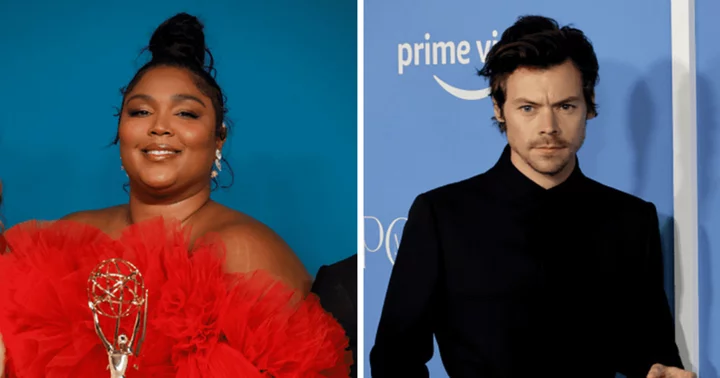
Why is Harry Styles being dragged into Lizzo scandal? Internet divided over 'Watermelon Sugar' singer being BFFs with rapper
Despite their close friendship, Lizzo has shared some allegedly inappropriate jokes about Harry Styles in the past
1970-01-01 08:00
